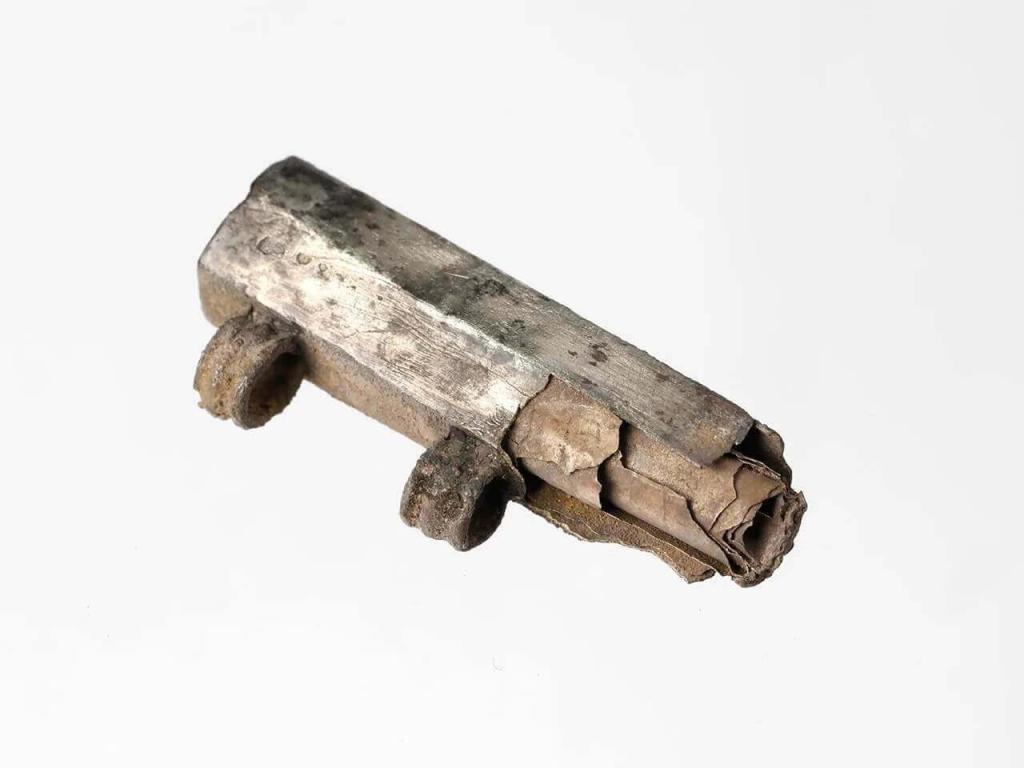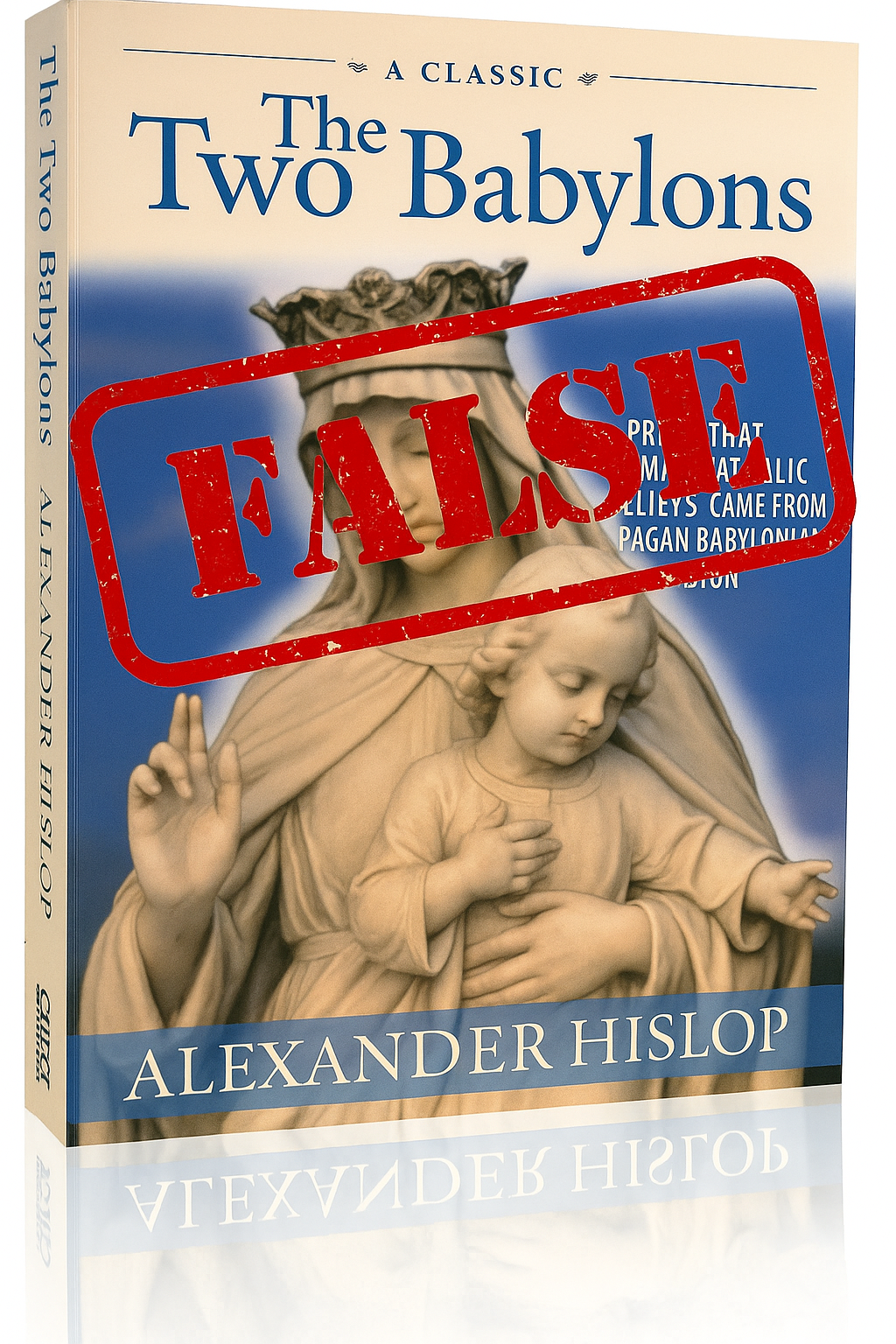Support Israel? OK, which Israel?

"We interrupt your regularly scheduled programme to bring you this..." Sorry if you were waiting for part 3 of the Coming of Jesus series, but what with all that's going on in the news lately, I felt that this needed to be written first.
"Support Israel's right to defend itself from terror."

If you've been on Facebook, or any other social media no doubt, I'm sure you will have seen (or even said) words to this effect in status' or memes. I keep seeing memes and images posted by people, often from Christians, about "supporting Israel" and each time it makes me stop and question that statement and/or sentiment. I question its accuracy, how biased or not the sources were, whether it's propaganda rather than truth. It makes me wonder about what view of God and theology that person holds to that enables Israel to get a 'free pass' as it were. There's images and videos being posted from both sides, but it seems that when there is something negative against Israel, it's called "propaganda" and staged/fake etc, but the other way around it is terrorism and self-defense by Israel. Then there's those who play the racism card, such as the image to the right, making people feel guilty of Anti-Semitism for not being a die-hard Zionist.
But what I'd really like to know is when did Christian's begin supporting any kind of violence or war? I realise the church has a long and bloody history - but is that really the Jesus way - Jesus the "prince of peace" (Isaiah 9:6)?
How about we do what Jesus taught and support efforts for peace, and not war; praying for our enemies and those who persecute, and not take sides, you know, like we're supposed to as Christ-followers.
"But I say to you, Love your enemies and pray for those who persecute you, so that you may be children of your Father in heaven; for he makes his sun rise on the evil and on the good, and sends rain on the righteous and on the unrighteous." – Matt 5:44-45
"Do not be overcome by evil, but overcome evil with good." – Rom 12:21
In the midst of all this though, there is one meme I've seen which seems to go against the grain, and which I would feel most comfortable sharing online, which I will do here too:

Memes aside, what does the Scriptures say on the matter of Israel, war and support for violence?
Being against the war that is being waged isn't the same as condoning the actions of terrorists or racism or killing children. The arguments just become emotional knee-jerkers when you throw in "the children" rather than looking at the situation as a whole and realising than killing anyone - whether babies, full grown adult or somewhere in between, is wrong (#6 of the 10 Commandments, anyone?).
Consider this from 1 Peter 2:21
For to this you have been called, because Christ also suffered for you, leaving you an example, so that you should follow in his steps.
And Romans 12:17-21,
Do not repay anyone evil for evil, but take thought for what is noble in the sight of all.If it is possible, so far as it depends on you, live peaceably with all. Beloved, never avenge yourselves, but leave room for the wrath of God; for it is written, “Vengeance is mine, I will repay, says the Lord.” No, “if your enemies are hungry, feed them; if they are thirsty, give them something to drink; for by doing this you will heap burning coals on their heads.” Do not be overcome by evil, but overcome evil with good.
The New Covenant, under Jesus, presents an interesting tension of non-violence and justice. A tension which Paul continues in Romans 12 in the context of governing authorities and their role in the world, but I think this quote from John Stott sums it up quite well:
“If my house is burglarized one night and I catch the thief, it may well be my duty to sit him down and give him something to eat and drink, while at the same time telephoning the police.”
Then you have the Church Fathers, who for the first few centuries, had some things to say on violence and joining the military in general. They weren't all in total agreement; some were complete pacifists, whereas others seemed to advocate non-violence but permitted self-defense. I'll just put a few quotes to make the point, but you can read more here about what they had to say, and by looking at the links at the end of this article for more info.
We refrain from making war on our enemies, and [we] cannot bear to see a man killed, even if killed justly.
— Justin Martyr
He who holds the sword must cast it away and that if one of the faithful becomes a soldier, he must be rejected by the Church, for he has scorned God.
— Clement of Alexandria
For even if soldiers came to John and received advice on how to act, and even if a centurion became a believer, the Lord, in subsequently disarming Peter, disarmed every soldier.
— Tertullian
War is war.
From what I can see online, and in the various conversations I've had, is that people are also confusing what "we" should do as a country, with what "we" should do as Christians. Obviously we as a country are going to respond in some form, often with violence as is the way of the world. My main question though, is is that how the Church should respond? Is violence a position Christians should show their support for, whatever the reason?
No, we shouldn't just sit back and accept terrorism or war, but neither should be respond with, or support, evil. And in this context, "evil" isn't simply just Hamas or whoever, it's everyone who perpetrates senseless killing, on both sides. It's about being pro-peace over and above any pro-nationality.
If, as in some posts I've seen online, this comes down to basically saying "the Bible says God gave the land to the Jews, therefore they can blow up anyone who says otherwise" and thus "support" Israel because they are God's "chosen" people – to that I say you've misunderstood the New Covenant, and possible the role of God with Israel. Even if you believe the Jews have some special status with God over and above the rest of us, there's still the issue that even from a cursory read of the Old Testament, it was GOD who protected Israel and often specifically told them to go to battle with seemingly weaker positions so that it could be shown that God was their protector, not their own might (eg. Judges 7:2; Lev 26:7-9).
With that in mind, can we honestly say that what Israel is doing now is under orders from God? That they are fighting from a weaker standpoint to prove God is on their side? More to the point – is any of this war "justified" religiously by the Israelis, or is it simply a secular war over land ownership? I suspect it's the latter, yet many Christians seem to be blindly "supporting" Israel just because it's Israel, as far as I can tell.
Who is Israel?
No doubt what I'm about to say will ruffle a few feathers (if I haven't already thus far!) but we need to address the issue of who is Israel, Biblically speaking? Yes, there is a modern nation known as "Israel" now since 1948, but is that the same Israel of the Bible? The same Israel to whom God made his promises? If so, does that mean God's plans were on hiatus while there was no nation of Israel from AD 70 when Rome destroyed them, until 1948?
As one blogger put it,
If the laws that governed Israel in the Old Testament do not apply to Israel today, then they are just another nation, and they should be held to the same standard as every other nation. ... But evangelicals keep giving Israel a free pass. They do so because they believe it is God’s covenant nation. Yet when it comes to holding Israel to the stipulations of that covenant… silence.
And again;
Let’s say modern Israel IS a continuation of the Old Testament kingdom (with the noticeable absence of a king) ... How do we conclude from any of this that it’s not OK to criticize the Israeli state—especially when so much of the Hebrew Scriptures are themselves a prophetic critique of Israel?
Let me say it another way: the nation of Israel in the Middle East which we know of today, is not the same Israel of the New Covenant.
So who is Israel then, according to the New Testament? In a word: Jesus.
Galatians 3:16
Now the promises were made to Abraham and to his offspring; it does not say, “And to offsprings,” as of many; but it says, “And to your offspring,” that is, to one person, who is Christ.
That promise to Abraham of his offspring blessing the earth was not speaking of the Jewish people as a whole, but their culmination in being the lineage to which the Messiah would come!

What about the nation of Israel?
There are memes like the one on the right, which are also doing the rounds on the internet, quoting Gen 12:3 and by implication, putting guilt on anyone who dares say a bad word against the nation of Israel. Yes, all the families of the earth shall be blessed - but not by national Israel, but Jesus who IS the true Israel; the one in whom all the promises to the people of Israel are found complete (2 Cor 1:19-20).
It is now through faith in Jesus that we are grafted into the true Israel of God, and because of that, we are blessed! The true Israel of God now are those who believe in the promise that was given to Abraham, which was the Gospel, and not his earthly/natural descendants.
Don't take my word for it though, read for yourself how the Apostle Paul understood this:
Galatians 3:6-9
Just as Abraham “believed God, and it was reckoned to him as righteousness,” so, you see, those who believe are the descendants of Abraham. And the scripture, foreseeing that God would justify the Gentiles by faith, declared the gospel beforehand to Abraham, saying, “All the Gentiles shall be blessed in you.” For this reason, those who believe are blessed with Abraham who believed.
This passage from Galatians is an echo of what God said in Gen 12:3, and also Gen 22:18, which Peter also refers to as well in Acts 3:25-26.
Opponents to this view (often called "Replacement Theology") say that this means that God somehow failed in his plans with physical Israel and needed a "Plan B" as it were, hence, the Church. To be clear, I'm not saying the Church replaced Israel, but rather it is the continuation of what Israel was always meant to be, and so will be the people group in whom the promises from God will be made complete. It's no longer about land or race, but Jesus's righteousness and faithfulness and an expanded plan to include all people – not simply the Jews. God didn't fail in his promises to bless the nations, his plan was just bigger than anyone first imagined!
To be against this idea/view that Jesus is Israel though, is to be against the teachings of the Apostles and the Church Fathers. I'm not quite sure how you can come to that conclusion when Paul writes things like this to the church in Rome:
Romans 9:6-8
It is not as though the word of God had failed. For not all Israelites truly belong to Israel, and not all of Abraham’s children are his true descendants; but “It is through Isaac that descendants shall be named for you.” This means that it is not the children of the flesh who are the children of God, but the children of the promise are counted as descendants.
Paul is building his case that it is not simply a matter of being born a Jew any longer. God's plan all along was to include Gentiles (ie. non-Jews), but that was only going to happen after his Messiah had come. God's plan was always for the whole world, but his vessel of choice to bring this to fulfillment, was the Jewish people. It is now through faith that we become the true spiritual Israel under the New Covenant, grafted into the vine (Rom 11:17; Jn 15:1) so that by God showing mercy to the Gentiles through the Jews disobedience, God can in return, show mercy on them again through the Gentiles in order than none can boast, but all may be humbled by God's overwhelming grace (Rom 11)!
This is Paul's theme throughout his letters to the churches and the new believers, making the point over and over that natural Jews are now no different than Gentiles when it comes to the promises of God. Through Jesus, God has created a new humanity — a new race of people, who are heirs and descendants to Israel's promises!
Eph 2:14-16
For he [Jesus] is our peace; in his flesh he has made both groups into one and has broken down the dividing wall, that is, the hostility between us. He has abolished the law with its commandments and ordinances, that he might create in himself one new humanity in place of the two, thus making peace, and might reconcile both groups to God in one body through the cross, thus putting to death that hostility through it.
Galatians 3:28-29
There is no longer Jew or Greek, there is no longer slave or free, there is no longer male and female; for all of you are one in Christ Jesus. And if you belong to Christ, then you are Abraham’s offspring, heirs according to the promise.
And finally,
Romans 2:28-29
For a person is not a Jew who is one outwardly, nor is true circumcision something external and physical. Rather, a person is a Jew who is one inwardly, and real circumcision is a matter of the heart—it is spiritual and not literal. Such a person receives praise not from others but from God.
Thus, it follows then, that it is the Church and Christians - whether natural Jew or Gentile, who believes in and follows Jesus, that are now "spiritual Jews" grafted into the True Vine of Israel, that is, Christ Jesus.
I'll conclude and finish with a quote from another blogger who made an interesting observation with regards to this matter, and the parallels of what God spoke about national Israel, and what Peter says of the Church, which I think sums this all up nicely (the letters A,B,C are to link the parallels between the two verses):
To ancient national Israel: “Now therefore, if you will indeed obey My voice and keep My covenant, you shall be [A] MY TREASURED POSSESSION among all peoples, for all the earth is mine; and you shall be to Me [B] A KINGDOM OF PRIESTS and a [C] HOLY NATION…” (Exodus 19:5-6).
To the church: “But you are a chosen race, [B] A ROYAL PRIESTHOOD, a [C] HOLY NATION, a people [A] FOR HIS OWN POSSESSION, that you may proclaim the excellencies of Him who called you out of darkness into His marvelous light. Once you were not a people, but now you are God’s people…” (1 Peter 2:9-10).
Support the true Israel by being Christ-like in your behaviour, having the mind of Christ in your thinking (Philippians 2:1-18), and by loving God and loving your neighbour – whoever they may be.
Further reading:
- http://christiananswers.net/q-faith/fc-warperspectives.html
- http://www.firstthings.com/blogs/firstthoughts/2010/04/were-the-church-fathers-pacifists
- http://www.churchhistory101.com/feedback/fathers-military.php
- http://tcc.customer.sentex.ca/JLP/JLPs.php
- http://tfcmag.com/Maarschalk_page_article_80814.html
- http://benirwin.wordpress.com/2014/07/11/evangelicals-equating-modern-israel-with-israel-of-the-bible/
- http://www.daniels70weeks.com/
- http://benirwin.wordpress.com/2014/07/09/if-you-think-standing-with-israel-means-never-criticizing-them-youre-going-to-have-to-get-a-new-bible/
- http://5ptsalt.com/2011/03/19/jesus-christ-is-israel/
Leave a comment Like Back to Top Seen 1.1K times Liked 0 times
Enjoying this content?
Support my work by becoming a patron on Patreon!
By joining, you help fund the time, research, and effort that goes into creating this content — and you’ll also get access to exclusive perks and updates.
Even a small amount per month makes a real difference. Thank you for your support!
Subscribe to Updates
If you enjoyed this, why not subscribe to free email updates and join over 853 subscribers today!
My new book is out now! Order today wherever you get books
Recent Posts
Luke J. Wilson | 20th May 2025 | Islam
You are not alone. Around the world, many Muslims — people who already believe in one God, pray, and seek to live righteously — are drawn to know more about Jesus (ʿĪsā in Arabic). Some have heard He is more than a prophet. Some have sensed His presence in a dream or vision. And some simply long to know God more deeply, personally, and truly. So what does it mean to become a Christian? And how can you take that step? This guide is for you. 1. What Christians Believe About God and Jesus ➤ One God, Eternal and Good Christians believe in one God — the same Creator known to Abraham, Moses, and the prophets. But we also believe God is more personal and relational than many realise. In His love, He has revealed Himself as Father, Son (Jesus), and Holy Spirit — not three gods, but one God in three persons. ➤ Jesus Is More Than a Prophet Muslims honour Jesus as a great prophet, born of the virgin Mary. Christians also affirm this — but go further. The Bible teaches that Jesus is the Word of God (Kalimat Allāh), who became flesh to live among us. He performed miracles, healed the sick, raised the dead — and lived without sin.Jesus came not just to teach but to save — to bring us back to God by bearing our sins and rising again in victory over death. 2. Why Do We Need Saving? ➤ The Problem: Sin All people — no matter their religion — struggle with sin. We lie, get angry, feel jealous, act selfishly, or fail to love God fully. The Bible says: “All have sinned and fall short of the glory of God.” (Romans 3:23) Sin separates us from God. And no matter how many good deeds we do, we can never make ourselves perfect or holy before Him. ➤ The Solution: Jesus Because God loves us, He did not leave us in our sin. He sent Jesus, His eternal Word, to live as one of us. Jesus died willingly, offering His life as a sacrifice for our sins, then rose again on the third day. “But God proves his love for us in that while we still were sinners Christ died for us.” (Romans 5:8) 3. How Do I Become a Christian? Becoming a Christian is not about joining a Western religion. It’s about entering a relationship with God through faith in Jesus Christ. Here is what the Bible says: ✝️ 1. Believe in Jesus Believe that Jesus is the Son of God, that He died for your sins, and that He rose again. “If you confess with your lips that Jesus is Lord and believe in your heart that God raised him from the dead, you will be saved.” (Romans 10:9) 💔 2. Repent of Your Sins Turn away from sin and ask God to forgive you. This is called repentance. It means being truly sorry and choosing a new way. “Repent therefore, and turn to God so that your sins may be wiped out.” (Acts 3:19) 💧 3. Be Baptised Jesus commands His followers to be baptised in water as a sign of their new life. Baptism represents washing away your old life and rising into a new one with Jesus. “Repent and be baptised every one of you in the name of Jesus Christ so that your sins may be forgiven.” (Acts 2:38) 🕊️ 4. Receive the Holy Spirit When you believe in Jesus, God gives you the Holy Spirit to live within you, guiding you, comforting you, and helping you follow His will. “You received the Spirit of adoption, by whom we cry, ‘Abba! Father!’” (Romans 8:15) 🧎 5. Begin a New Life As a Christian, you are born again — spiritually renewed. You begin to grow in faith, love, and holiness. You read the Bible, pray, fast, and gather with other believers. Your life is no longer your own; you now live for God. 4. What Does a Christian Life Look Like? Jesus said: “If anyone wants to become my followers, let them deny themselves and take up their cross and follow me.” (Matthew 16:24) This means: Loving God with all your heart Loving your neighbour — even your enemies Forgiving others ...
Luke J. Wilson | 05th May 2025 | Politics
When we think about David and Saul, we often focus on David’s rise to kingship or his battle with Goliath. But hidden within that story is a deep lesson for today’s generation about leadership, resistance, and the power of revolutionary love. At a recent youth training event (thanks to South West Youth Ministries), I was asked how I would present the story of David and Saul to a Christian teenage youth group. My mind turned to the politics of their relationship, and how David accepted Saul’s leadership, even when Saul had gone badly astray. David recognised that Saul was still God’s anointed king — placed there by God Himself — and that it was not David’s place to violently remove him. Gen-Z are more politically aware and engaged than previous generations, and are growing up in a world where politics, leadership, and social issues seem impossible to escape. We live in a world where political leaders — whether Trump, Putin, Starmer, or others — are often seen as examples of failed leadership. It’s easy to slip into bitterness, cynicism, or violent rhetoric. These kids are immersed in a culture of activism and outrage. As Christians, we’re called to care deeply about truth and justice and approach leadership differently from the world around us (Hosea 6:6; Isaiah 1:17; Micah 6:8). The story of David and Saul offers pertinent lessons for our modern lives. Respect Without Endorsement David’s respect for Saul was not blind loyalty. He did not agree with Saul’s actions, nor did he ignore Saul’s evil. David fled from Saul’s violence; he challenged Saul’s paranoia; he even cut the corner of Saul’s robe to prove he had the chance to kill him but chose not to. Yet throughout, David refused to take matters into his own hands by force. Why? Because David understood that even flawed authority ultimately rested in God’s hands, he trusted that God would remove Saul at the right time. This is echoed later in the New Testament when Paul writes in Romans 13 that “there is no authority except from God, and those authorities that exist have been instituted by God”, something even Jesus reminded Pilate of during his trial (John 19:10–11). In other words, even flawed leadership can be part of God’s bigger plan, whether for blessing or discipline. Even when leaders go bad, our call as believers is to maintain integrity, respect the position, and resist evil through righteousness — not rebellion. David and Saul: A Lesson in Respect and Restraint Saul was Israel’s first king — anointed by God but later corrupted by pride, fear, and violence. David, chosen to succeed him, spent years running for his life from Saul’s jealous rage. One day, David found Saul alone and vulnerable in a cave. His men urged him to strike Saul down and end the conflict. But David refused: “I will not raise my hand against my lord; for he is the Lord’s anointed.” (1 Samuel 24:10) Instead of killing Saul, David cut off a piece of his robe to prove he could have harmed him, but didn’t. In doing so, he demonstrated a real form of nonviolent resistance. He stood firm against Saul’s injustice without resorting to injustice himself, and acted in a way that could try to humble Saul instead. Peacemaking Is Not Passivity There is a modern misconception that peacemaking means doing nothing and just letting injustice roll all over us. But true biblical peacemaking is not passive; it actively resists evil without becoming evil. Interestingly, David’s actions toward Saul also foreshadow the type of nonviolent resistance Jesus later taught. When Jesus commanded His followers to turn the other cheek, go the extra mile, and love their enemies, he was not calling for passive submission but offering what scholar Walter Wink describes as a “third way” — a bold, peaceful form of resistance that uses what he calls “moral jiu-jitsu” to expose injustice without resorting to violenc...
Luke J. Wilson | 21st April 2025 | Easter
Over the years, I’ve encountered many Christians who’ve quoted from Alexander Hislop’s The Two Babylons as if it were a solid historical resource. The book claims that the Roman Catholic Church is not truly Christian but rather a continuation of ancient Babylonian religion. It’s self-assured and sweeping, and for many people, it seems to explain everything, from Marian devotion to Lent and Easter, to Christmas, as rooted in paganism. But is it accurate? In short: no, it really isn’t. Hislop’s work is a classic example of 19th-century pseudohistory — a polemical piece, written to prove a point, not to explore any historical truth. Flawed Methods and Wild Claims Hislop argues that most Catholic practices — from the Mass and clerical robes to festivals like Christmas and Easter — were somehow borrowed from Babylonian religion. The problem being that Hislop doesn’t rely on primary sources or credible historical data. Instead, he draws connections based on word similarities (like Easter and Ishtar) or visual resemblances (like Mary and child compared with mother-goddess statues from ancient cultures). But phonetic resemblance isn’t evidence, and neither is visual similarity. For example, if I say “sun” and “son” in English, they may sound alike, but they aren’t the same thing. That’s the level of reasoning at work in much of The Two Babylons. Hislop often lumps together completely different ancient figures — Isis, Semiramis, Ishtar, Aphrodite — as if they were all just variations of the same deity. He then tries to say Mary is just the Christian version of this pagan goddess figure. But there’s no credible evidence for that at all. Mary is understood through the lens of Scripture and Christian theology, not through pagan myth. The earliest depictions of Mary and the Christ-child date back to the second century and do not resemble any of the pagan idols. But, again, the common accusations are based on superficial similarities of a woman nursing a child. That’s going to look the same no matter who or what does that! Oldest depiction of Mary. Dura-Europos Church, Syria, 2nd century What About Lent and Tammuz? One of Hislop’s more popular claims is that Lent comes from a Babylonian mourning ritual for the god Tammuz, mentioned in Ezekiel 8:14. He argues that early Christians borrowed the 40-day mourning period and just rebranded it. But this doesn’t line up with the evidence. Lent developed as a time of fasting and repentance leading up to Easter — especially for new believers preparing for baptism. The number forty comes from Scripture: Jesus’ forty days in the wilderness, Moses’ fast on Sinai, and Elijah’s journey to Horeb. Church Fathers like Irenaeus and Athanasius saw it as a time for self-denial and spiritual renewal — not mourning a pagan god. Yes, there are pagan festivals that involve seasonal death and rebirth stories. But similarity does not mean origin. If that logic held, then even Jesus’ resurrection would be suspect because pagan cultures also told resurrection-like stories. Yet the gospel stands apart — not because of myth but because of history and revelation. Why Hislop’s Work Persists Even though The Two Babylons is poor scholarship, it’s unfortunately had a long shelf life. That’s partly because it appeals to a certain kind of suspicion. If you’re already sceptical about the Catholic Church, Hislop offers an easy explanation: “It’s all pagan!”. But history isn’t ever that simple. And theology — especially the theology handed down through the ages by the faithful— isn’t built on conspiracy and apparent obscure connections, but on Christ and the truth of the Scriptures. Interestingly, even Ralph Woodrow, a minister who once wrote a book defending Hislop’s ideas, later retracted his views after digging deeper into the evidence. He eventually wrote a book called The Babylon Connect...
Darwin to Jesus | 16th April 2025 | Atheism
Guest post by Darwin to Jesus Dostoevsky famously said, “If there is no God, then everything is permitted.” For years, as an atheist, I couldn’t understand what he meant, but now I do… Here’s a simple analogy that shows why only theism can make sense of morality: Imagine you just got hired at a company. You show up, set up your desk, and decide to use two large monitors. No big deal, right? But then some random guy walks up to you and says: “Hey, you’re not allowed to do that.” You ask, “What do you mean?” They say, “You’re not permitted* to use monitors that big.” In this situation, the correct response would be: “Says who?” We’ll now explore the different kinds of answers you might hear — each one representing a popular moral theory without God — and why none of them actually work. Subjective Morality The random guy says, “Well, I personally just happen to not like big monitors. I find them annoying.” Notice that’s not a reason for you to change your setup. Their personal preferences don’t impose obligations on you. This is what subjective morality looks like. It reduces morality to private taste. If this were the answer, you’d be correct to ignore this person and get back to work — big monitors are still permitted. Cultural Relativism Instead, they say, “It’s not just me — most people here don’t use big monitors. It’s not our culture.” That’s cultural relativism: right and wrong are just social customs, what is normal behavior. But notice customs aren’t obligations. If the culture were different, the moral rule would be different, which means it isn’t really moral at all. You might not fit in. You might not be liked. But you’re still permitted to use big monitors. Emotivism Here after being asked “says who?” the person just blurts out, “Boo, big monitors!” You reply, “Hurrah, big monitors!” That’s the entire conversation. This is emotivism. On this moral theory when we talk about right and wrong we’re actually just expressing our personal feelings towards actions, I boo rape, you hurrah rape. But shouting “boo!” at someone doesn’t create real obligations. You’re still permitted to use large monitors. Utilitarianism Here, the person says, “Your big monitors lower the overall productivity of the office. You’re not permitted to use them because they lead to worse consequences.” This is utilitarianism: morality is based on producing the greatest happiness for the greatest number. But even if that’s true — so what? Who says you’re obligated to maximize group productivity? And what if your monitors actually help you work better? Utilitarianism might tell you what leads to better outcomes, but it doesn’t tell you why you’re morally obligated to follow that path — especially if it comes at your own expense. You’re still permitted to use large monitors. Virtue Ethics Here they say, “Using big monitors just doesn’t reflect the virtues we admire here — simplicity, humility, restraint.” This is virtue ethics. Morality is about becoming the right kind of person. But who defines those virtues? And why are you obligated to follow them? What if your idea of a virtuous worker includes productivity and confidence? Without a transcendent standard, virtues are just cultural preferences dressed up in moral language. If you don’t care about virtue or their arbitrary standards, then you have no obligation. You’re still permitted to use large monitors. Atheist Moral Realism But what if they say, “Listen, there’s a rule. It’s always been here. It says you can’t use monitors that large.” You ask, “Who made the rule?” They say, “No one.” You ask, “Who owns this company?” They say, “No one owns it. The company just exists.” You look around and ask, “Where is the rule?” They say, “You won’t find it w...












